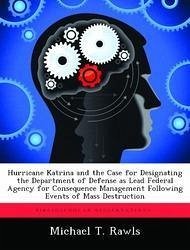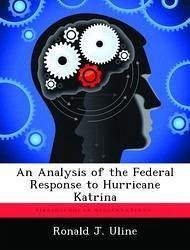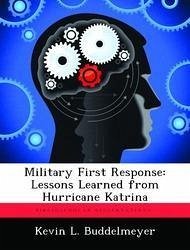
Hurricane Katrina and the Case for Designating the Department of Defense as Lead Federal Agency for Consequence Management Following Events of Mass De
Versandkostenfrei!
Versandfertig in über 4 Wochen
58,99 €
inkl. MwSt.

PAYBACK Punkte
29 °P sammeln!
11 September, 2001 was one of the most defining moments in US history and one which ushered in sweeping new ideas about US Grand Strategy, international diplomacy, and the new world order.1 What emerged from the chaotic aftermath of 9-11 was the stark reality, in the words of President George W. Bush, that "America is now threatened less by conquering states than we are by failing ones...menaced less by fleets and armies than catastrophic technologies in the hands of the embittered few".2 The question now, some four and one half years after the attacks on the World Trade Center, is whether we ...
11 September, 2001 was one of the most defining moments in US history and one which ushered in sweeping new ideas about US Grand Strategy, international diplomacy, and the new world order.1 What emerged from the chaotic aftermath of 9-11 was the stark reality, in the words of President George W. Bush, that "America is now threatened less by conquering states than we are by failing ones...menaced less by fleets and armies than catastrophic technologies in the hands of the embittered few".2 The question now, some four and one half years after the attacks on the World Trade Center, is whether we are better prepared to deter, detect, and ultimately manage the consequences of additional and potentially far deadlier attacks? How do we objectively measure the effectiveness of the monumental restructuring that has taken place within the federal government following the attacks on the Pentagon and World Trade Center? Hurricane Katrina provided that opportunity on 29 August, 2005. Many corollaries can be drawn from the consequences and response to Hurricane Katrina in evaluating how prepared this nation is to deal with future acts of terror on US soil. By examining DOD's role in the Federal Response Plan, identifying lessons learned from Hurricane Katrina, and finally evaluating legal and historical precedent for utilizing the US military in homeland defense, this paper aims to provide a reasoned response for designating the Department of Defense as lead federal agency (LFA) for consequence management following an event of mass destruction or mass disruption.














